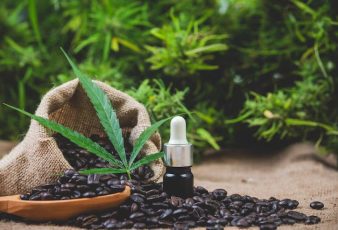Addiction is a formidable foe that leaves many men feeling powerless and alone. But with the right strategies and support, overcoming addiction is possible. This journey back to health and wholeness often transforms lives in profound ways.
The Critical Role Of Mental Health In Addiction Recovery
Mental health issues frequently accompany addiction. According to the Journal of the American Medical Association, over 50% of individuals battling addiction also face conditions such as depression, trauma, or anxiety.
Strategies that enhance mental health during recovery include:
- Cognitive Behavioral Therapy (CBT) to replace negative thought patterns that can trigger substance abuse with healthier coping skills. Studies show CBT reduces rehab dropout rates by 25-50%.
- Support Groups like Alcoholics Anonymous or Narcotics Anonymous provide understanding, accountability, and guidance to those facing similar struggles. Attendance is linked to doubling one’s chances of remaining sober.
- Mindfulness Practices like meditation, yoga, and breathwork cultivate present-moment focus and emotional regulation. One study found mindfulness significantly decreased cravings and anxiety during early addiction recovery.
With mental resilience as their foundation, men are better equipped to do the hard work of overcoming addiction. Health literacy and education on addiction care options empower individuals to make the first steps toward recovery.
This correlation highlights the need to address any underlying mental health conditions as a foundation for recovery. Unresolved traumas, mood disorders, and emotional disturbances often act as triggers for substance abuse. Healing the mind is key to overcoming addiction.
Improving health literacy by educating people about addiction can empower them to make more informed choices about treatment options. As explained how can health literacy helps people become more productive partners in managing chronic conditions like addiction:
Addressing these mental health challenges is crucial for recovery. The National Institute on Drug Abuse states “The intertwined relationship between mental health and substance abuse makes a combined treatment approach the most effective path to overcoming addiction”.
How Substance Abuse Impacts Men’s Physical Health

Beyond mental health consequences, prolonged substance abuse inflicts severe damage on men’s bodies
- Cardiovascular System: Cocaine abuse leads to a 24% higher heart attack risk and 34% higher stroke risk compared to non-users.
- Liver: Alcoholic liver disease progresses faster in men, with men making up 75% of alcohol-related liver disease deaths.
- Hormones: Chronic alcohol abuse decreases testosterone levels 110% more in men versus women
However, overcoming addiction can reverse much of this damage
- Within 1 year of quitting smoking or abusing stimulants, men experience an average 50% decrease in heart disease risk.
- Liver function improves by 25-30% in as little as 1 month after stopping alcohol abuse
- Testosterone levels start increasing within 1 week of sobriety and can fully recover within 3-12 months depending on the substance.
To accelerate the healing process, it helps to
- Adopt a nutrient-dense, whole-food diet.
- Exercise regularly to improve circulation, liver function, and testosterone.
- Take doctor-recommended supplements like milk thistle for liver support.
- Get lab tests done periodically to monitor improvements.
Rebuilding physical health complements the mental renewal that comes with sobriety. A healthy body supports a healthy mind.
The Impact Of Support Systems In Battling Addiction
Battling the demon of addiction rarely succeeds in isolation. Support systems are cornerstones of recovery. For men, studies show engaging family members leads to a 20% higher likelihood of maintaining sobriety long-term.
Reconciling With Family

Addiction strains family ties. However, family counseling helps rebuild trust and enables loved ones to provide practical recovery support. Setting healthy boundaries and communicating openly facilitates the healing process.
Peer Support Groups
Peer support provides two vital elements: hope and accountability. A 2020 study found men who regularly attended AA or NA support groups were twice as likely to stay sober for 1 year or longer compared to those who didn’t participate in peer support.
Cultivating Sober Friendships
Surrounding oneself with friends committed to sobriety removes exposure to temptation during vulnerable periods. Conversely, maintaining ties to friends while still abusing substances often sabotages recovery.
Overcoming addiction requires strength drawn from social support systems. By proactively building a network of allies in recovery, men can defeat this isolating disease.
Innovative Therapies And Approaches In Addiction Treatment

Traditional treatment modalities are being augmented by new techniques showing promise
Psychedelic-Assisted Therapy: Once controversial, psychedelics like psilocybin and MDMA are demonstrating efficacy under medically supervised conditions. Studies show 70% success rates in breaking nicotine addiction with psilocybin-assisted therapy.
Virtual Reality (VR): VR simulates high-risk situations, allowing men to safely practice refusal and coping skills. When combined with cognitive behavioral therapy, studies report VR decreasing post-treatment alcohol consumption by 65%.
Holistic Practices: Meditation, yoga, art therapy, music therapy, pet therapy, nature immersion, and acupuncture are becoming part of integrated recovery programs.
By embracing progressive treatment approaches, men have more tools than ever to overcome addiction.
Staying Vigilant Against Relapse
Achieving sobriety is an accomplishment to be proud of. But maintaining it long-term requires diligence to avoid relapse triggers like
- Socializing with friends still abusing substances
- Letting negative emotions like anger or sadness go unchecked
- Becoming isolated and disconnected from support networks
- Stopping therapy or peer support groups prematurely
Strategies to stay the course include
- Having a plan to manage high-risk situations
- Maintaining therapy, support groups, and sober social connections
- Adopting regular exercise to manage stress and craving
- Using sobriety tracking apps like I Am Sober for motivation
- Develop a relapse response plan so a slip doesn’t spiral into a full relapse
Sustaining recovery is a process of continual learning and growth. But each challenge overcome propels men further on their transformative journey.
Personal Transformation Through Recovery
For many men, overcoming addiction sparks a metamorphosis in how they see themselves and what’s possible for their lives. By embracing this personal transformation, men can redefine their identities and potential.
It begins with cultivating self-awareness. Examining the underlying wounds, traumas, and coping mechanisms that contribute to addiction allows men to rewrite their stories from victim to victim.
Next, envisioning life in recovery unlocks renewed purpose and meaning. Creating a purpose-driven existence anchored in service, connection, and productivity sustains motivation.
Practicing self-compassion and letting go of shame or self-judgment for past actions clears space for positive growth. Forgiveness of self and others accelerates healing.
In recovery, the trials of addiction become transformational building blocks. They build a life of health, passion, and contribution. The door to a radically new personal identity and future stands open.

The Role Of Detoxification
Detoxification, or detox, is the critical initial step in the journey toward recovery from addiction. It involves allowing the body to rid itself of the substances to which it has become dependent. Withdrawal symptoms often accompany this phase. Their severity depends on the substance, duration of use, and the individual’s health. Symptoms can range from mild to severe.
What To Expect During Detox
During detox, individuals can expect a variety of physical and psychological symptoms. Their bodies have to adjust to functioning without the substance. Symptoms might include nausea, shaking, anxiety, and cravings. The severity and duration of these symptoms can vary, but medical supervision can help manage them. Detox should ideally be conducted under the care of healthcare professionals in a controlled environment, like a rehab facility or hospital, to ensure safety and comfort.
Medical Supervision And Safety In Detoxification

Medical supervision during detox is crucial for ensuring the individual’s safety and comfort. Healthcare professionals can provide medications to ease withdrawal symptoms. They also track vital signs and address any complications that arise. This support helps to mitigate physical and emotional discomfort. It also lays a healthier foundation for the next steps in the recovery process.
Managing Triggers And Cravings
Overcoming addiction involves more than just physical detoxification. It requires learning to manage triggers and cravings that can lead to relapse. Understanding and coping with these challenges is a vital part of sustaining recovery.
Identifying And Avoiding Triggers
Triggers are specific situations, environments, emotions, or people. They can induce cravings or the desire to use substances. Identifying personal triggers is a critical step in recovery. This awareness allows individuals to develop strategies to avoid these triggers. They can also approach them with caution. Strategies might include changing routines, avoiding certain social situations, or employing stress-reduction techniques.
Coping Strategies for Handling Cravings
Cravings are intense desires for substances and can occur even after periods of abstinence. Coping strategies for managing cravings include
- Distraction: Engaging in activities that divert attention away from the craving, such as exercise, hobbies, or socializing.
- Delay: Practicing the art of delaying the decision to use, which can often reduce the intensity of the craving over time.
- Deep Breathing and Relaxation: Utilizing relaxation techniques, such as deep breathing, meditation, or yoga, to manage the stress and anxiety that often accompany cravings.
- Discussing: Talking about cravings with a supportive friend, family member, or therapist can provide relief and perspective.
Mindfulness And Meditation
Mindfulness and meditation are powerful tools for managing triggers and cravings. These practices help individuals stay present and aware. They reduce the likelihood of automatic responses to cravings or triggers. By developing a mindful approach to recovery, individuals can observe their thoughts and feelings without judgment. They can then choose how they respond to them.
Conclusion
We conclude our exploration into overcoming addiction for optimal men’s health. The journey to recovery is multifaceted. It requires not only the initial step of detoxification but also a sustained effort to manage triggers and cravings. Each phase of this journey plays a critical role in building a foundation for a healthier and more fulfilling life. Acknowledging the problem, adopting lifestyle changes, and seeking support are all important.
Frequently Asked Questions About Overcoming Addiction
1. What is addiction and how does it affect men’s health?
Addiction is a chronic disorder. It is characterized by compulsive engagement in rewarding stimuli, despite adverse consequences. Alcohol can impact men’s health and lead to physical issues. This includes heart disease, liver damage, and an increased risk of accidents. It can also cause mental health problems like depression, anxiety, and stress.
2. How can addiction be recognized in men?
Men’s addiction can be recognized by behavioral changes. These include increased secrecy, withdrawal from social activities, neglecting responsibilities, and physical symptoms. For example, changes in sleep patterns, weight loss or gain, and deteriorating personal hygiene.
3. What are the first steps in overcoming addiction?
The first steps in overcoming addiction include acknowledging the problem. Reach out for support from loved ones or professionals. Consider treatment options, such as therapy, medication, or a combination of both.
4. How important is professional help in treating addiction?
Professional help is crucial in treating addiction as it provides a structured and evidence-based approach. Professionals can offer medical detoxification, therapy, and support groups. These are essential components for successful recovery.
5. What role does detoxification play in addiction recovery?
Detoxification is the first step in addiction recovery. It involves eliminating addictive substances from the body. It helps manage withdrawal symptoms under medical supervision. This prepares the individual for further treatment.
6. Are there specific addiction treatments for men?
Addiction treatments generally apply to both men and women. Some programs are tailored for men. They address issues like masculinity and societal expectations. These programs offer a supportive environment for men to share their experiences.
7. How can family and friends support a man overcoming addiction?
Family and friends can offer emotional support and encourage treatment. They can participate in family therapy sessions. This can provide a stable environment that reduces the risk of relapse. It’s also important for them to educate themselves about addiction to understand the recovery process.
8. What lifestyle changes are recommended for someone recovering from addiction?
Recommended lifestyle changes include adopting a healthy diet. Regular physical exercise is also recommended. Maintaining a regular sleep schedule is important. Avoiding triggers and engaging in hobbies or activities that promote well-being is also recommended.
9. How can one deal with cravings and triggers during recovery?
Dealing with cravings and triggers involves recognizing the signs. It also involves avoiding high-risk situations. You can practice stress-reduction techniques like mindfulness or meditation. And seek support from peers or a therapist when needed.
10. What is the role of therapy in addiction recovery?
Therapy plays a crucial role in addiction recovery. It helps individuals understand the root causes of their addiction, develop coping strategies, improve emotional regulation, and work through any underlying mental health issues.
11. Can medication assist in overcoming addiction?
Yes, medication can be an important part of treatment for some addictions. It helps to reduce cravings, ease withdrawal symptoms, and treat any co-occurring mental health conditions.
12. What is a relapse and how is it handled?
A relapse is the return to substance use after a period of abstinence. It is treated as a part of the recovery process. It emphasizes the need to reassess and adjust the treatment plan, reinforce support systems, and increase coping strategies.
13. How does overcoming addiction improve men’s health?
Overcoming addiction leads to significant improvements in physical and mental health. This includes lower risk of chronic diseases and improved mental health status. It also leads to better relationships and an overall increased quality of life.
14. Are support groups beneficial in addiction recovery?
Yes, support groups like Alcoholics Anonymous (AA) or Narcotics Anonymous (NA) provide a sense of community. They offer mutual support and understanding, which are vital for sustained recovery.
15. How can one maintain sobriety in the long term?
Maintaining sobriety involves a continuous commitment to recovery. It includes participating in therapy or support groups. It also involves practicing healthy lifestyle habits, setting goals for the future, and having strategies to deal with potential triggers or stressors.
Read Also:




























